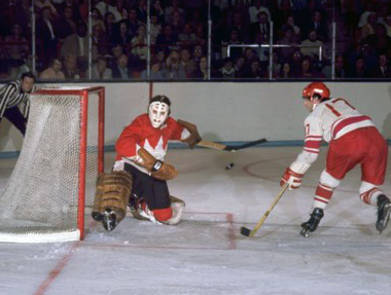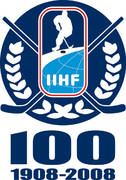

Story #3 Soviets shock Canada in Summit Series openerSeptember 2, 1972 – Montreal, Canada
The withdrawal of Canada from international hockey in 1970 was the result of an increasingly bitter feud between that country and other top European countries, notably the Soviet Union. Canada had long believed that Iron Curtain countries used professional players in World Championship and Olympic competition because their players did nothing but play hockey eleven months of the year.  The first game of the series, at the Forum in Montreal on September 2, 1972, goes down as one of the greatest moments in hockey’s history. Prime Minister Pierre Trudeau was on the red carpet at centre ice for the opening ceremonies, and once the puck was dropped the apparent slaughter began. Phil Esposito scored 30 seconds after the opening faceoff, and as he laughed on his way to centre ice for the faceoff, fans felt the romp was only just beginning. Six minutes later, Paul Henderson upped the score to 2-0, and fans cheered good-naturedly for their country. About the Top 100 StoriesAs part of the IIHF's 100th anniversary celebrations, www.IIHF.com is featuring the 100 top international hockey stories from the past century (1908-2008). Starting now and continuing through the 2008 IIHF World Championships in Canada, we will bring you approximately three stories a week counting down from Number 100 to Number 11.
The Final Top 10 Countdown will be one of the highlights of the IIHF's Centennial Gala Evening in Quebec City on May 17, the day prior to the Gold Medal Game of the 2008 World Championship.
These are the criteria for inclusion on this list: First, the story has to have had a considerable influence on international hockey. Second, it has to have had either a major immediate impact or a long-lasting significance on the game. Third, although it doesn't necessarily have to be about top players, the story does have to pertain to the highest level of play, notably Olympics, World Championships, and the like. The story can be about a single moment — a goal, a great save, a referee's call — or about an historic event of longer duration — a game, series, tournament, or rule change. |
 Click here for the 100 Top Stories
|
|






